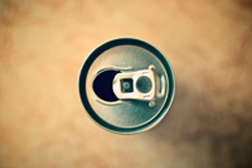 Perhaps the most high profile of the lawsuits is the suit filed by the family of Anais Fournier, a 14-year-old who drank two energy drinks in two days and later died following cardiac arrest. Her death certificate listed the cause of death as “cardiac arrhythmia due to caffeine toxicity.” Fournier’s parents filed a wrongful death lawsuit against Monster Energy, expected to go to trial later this month.
Perhaps the most high profile of the lawsuits is the suit filed by the family of Anais Fournier, a 14-year-old who drank two energy drinks in two days and later died following cardiac arrest. Her death certificate listed the cause of death as “cardiac arrhythmia due to caffeine toxicity.” Fournier’s parents filed a wrongful death lawsuit against Monster Energy, expected to go to trial later this month.So what’s the problem with the caffeine in energy drinks? According to critics, there are a few issues. First is that energy drinks tend to have higher levels of caffeine than coffee or soda. According to a 2012 Consumer Reports study, energy drinks have up to 242 milligrams of caffeine per serving. Keep in mind that some energy drink cans contain more than one serving. The same article noted that an eight-ounce cup of coffee generally has around 100 milligrams of caffeine.
Safe limits of caffeine are as high as 400 milligrams per day for adults, but as low as 45-85 milligrams per day for children, depending on the child’s weight. A child drinking an energy drink with 242 milligrams of caffeine would receive triple the recommended daily dose. Worse, they would receive that dose all at once, rather than throughout the day.
READ MORE MONSTER ENERGY DRINK INJURY LEGAL NEWS
Caffeine overdose is linked to serious cardiac problems, including arrhythmia.
Lawsuits have been filed against energy drink makers, alleging patients were not properly warned about the risk of heart problems due to consumption of the caffeinated beverages. Earlier this year, two such lawsuits were reportedly settled for undisclosed amounts.

READER COMMENTS
Tonta Jackson
on